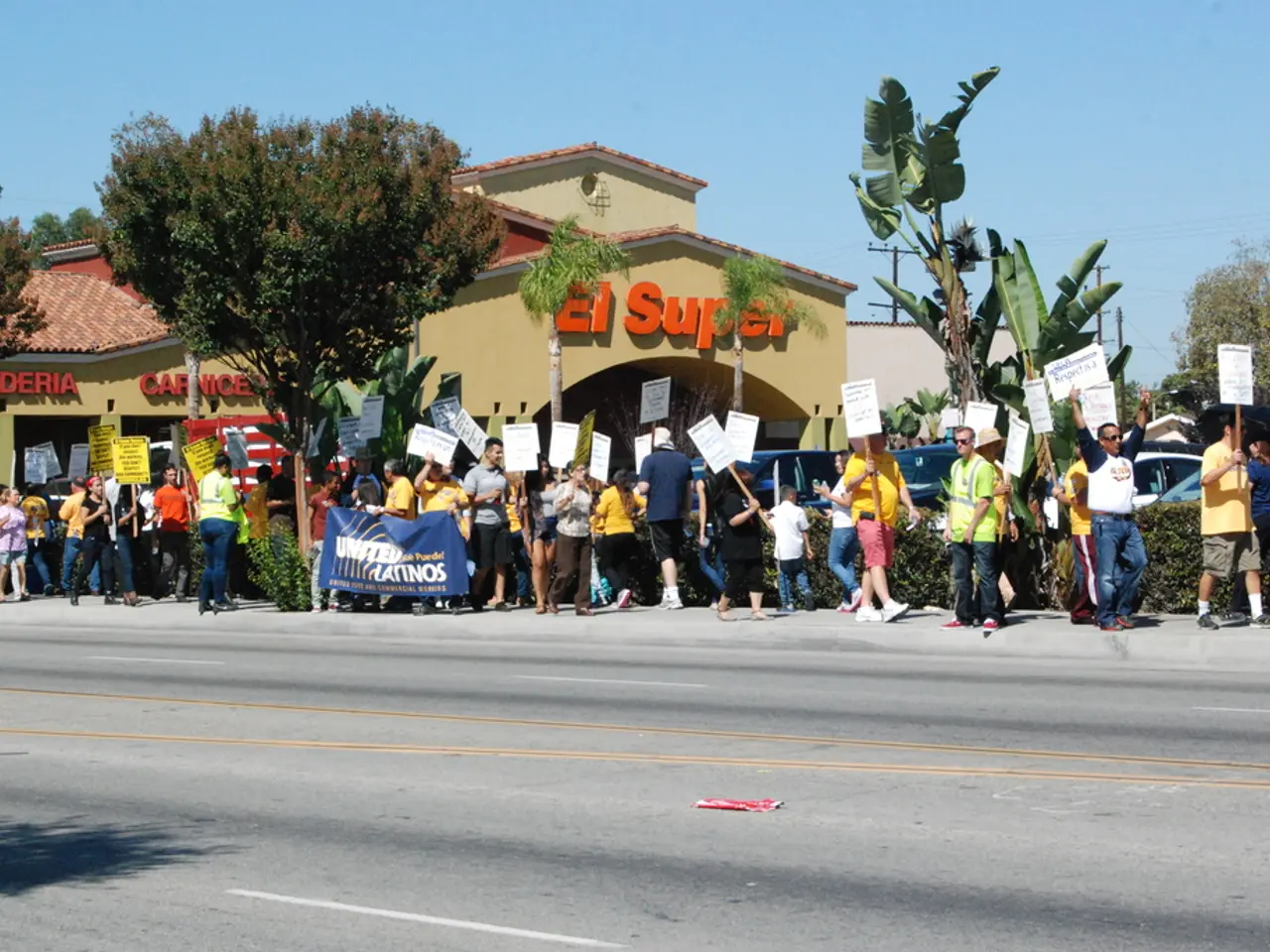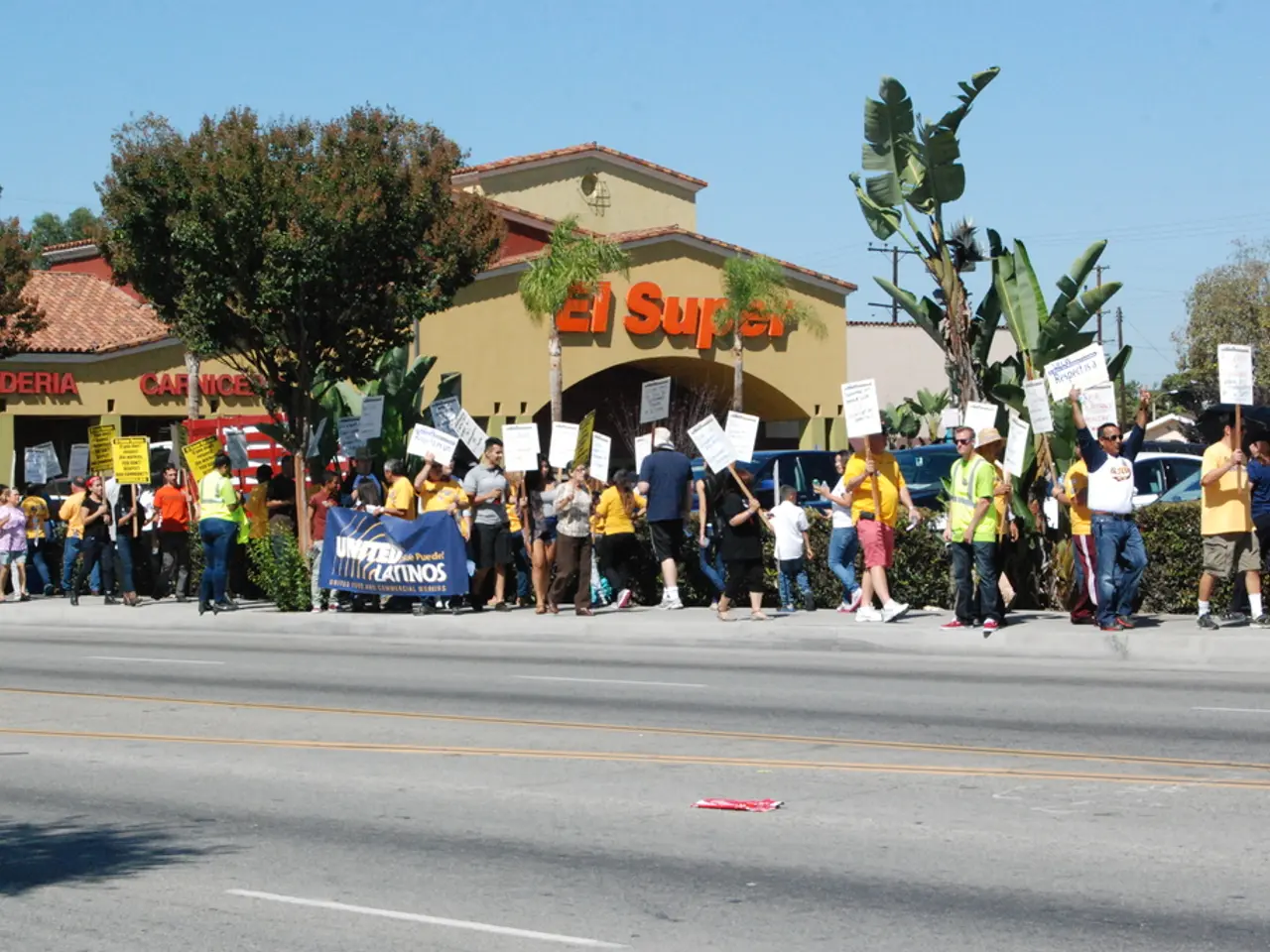Latvia advises Trump to act swiftly and impose tariffs on Russia rather than delaying for 50 days
The international community is witnessing a renewed push for sanctions against Russia following its continued military actions in Ukraine. This development comes amidst stalled peace talks and growing concerns over the conflict's escalation.
In the United States, President Donald Trump has signalled his openness to the Sanctioning Russia Act of 2025, a bipartisan bill that could impose sweeping tariffs and secondary sanctions on those supporting Russia’s economy or war effort. This potential policy shift marks the first major sanctions-related move since Trump’s second term began. Additionally, Trump has pledged to renew arms supplies to Ukraine, signifying stronger U.S. support amid the stalemate in negotiations with Russia.
However, Trump's threats of imposing 100% import tariffs on countries trading with Russia if no ceasefire is reached within 50 days indicate a readiness to escalate economic pressure significantly. These measures could potentially affect more than a dozen countries in Asia, the Middle East, and South America that buy Russian oil and gas.
In the European Union, the 18th sanctions package targeting Russia has been proposed, which includes a ban on transactions involving the Nord Stream gas pipelines, bans on imports of refined products made from Russian crude oil, and sanctions on 77 “shadow fleet” vessels transporting oil above the price cap. However, the EU's stalled agreement has exposed internal divisions, with Slovakia blocking consensus among the 27 member states.
Foreign Minister of Latvia, Baiba Braže, has expressed her support for Trump's decisions, welcoming the supply of weapons to Ukraine and his promise of secondary tariffs on Russia and its trading partners. She emphasises that the introduction of sanctions should happen earlier to force Russia to the negotiating table and potentially influence the situation on the battlefield.
Russia views these expanding sanctions and renewed U.S. support for Ukraine as hostile actions exacerbating economic and political isolation. The Kremlin has called Trump's statements "quite serious." Foreign Minister Sergei Lavrov considered that Trump is under "unacceptable pressure" from the EU and the current NATO leadership.
Ukraine, on the other hand, welcomes the enhanced U.S. military and sanctions support as vital to resisting Russian aggression. However, it remains concerned about delays and disputes within the EU impacting the effectiveness of sanction measures.
In conclusion, the U.S. is moving toward imposing stronger sanctions and resuming military aid to Ukraine amid stalled peace talks, while the EU continues to maintain and propose new sanctions packages but faces internal hurdles delaying further action. Russia perceives these developments as intensified pressure, whereas Ukraine regards them as crucial support despite some frustration over EU delays.
In the midst of this international standoff, the general-news circles discuss the potential implications of the Sanctioning Russia Act of 2025, a bill that could introduce sweeping sanctions in the United States, aligning with the politics of its president, Donald Trump. Simultaneously, the European Union is grappling with internal divisions while proposing the 18th sanctions package against Russia, including measures that could affect transactions involving the Nord Stream gas pipelines and imports of refined products from Russian crude oil.





